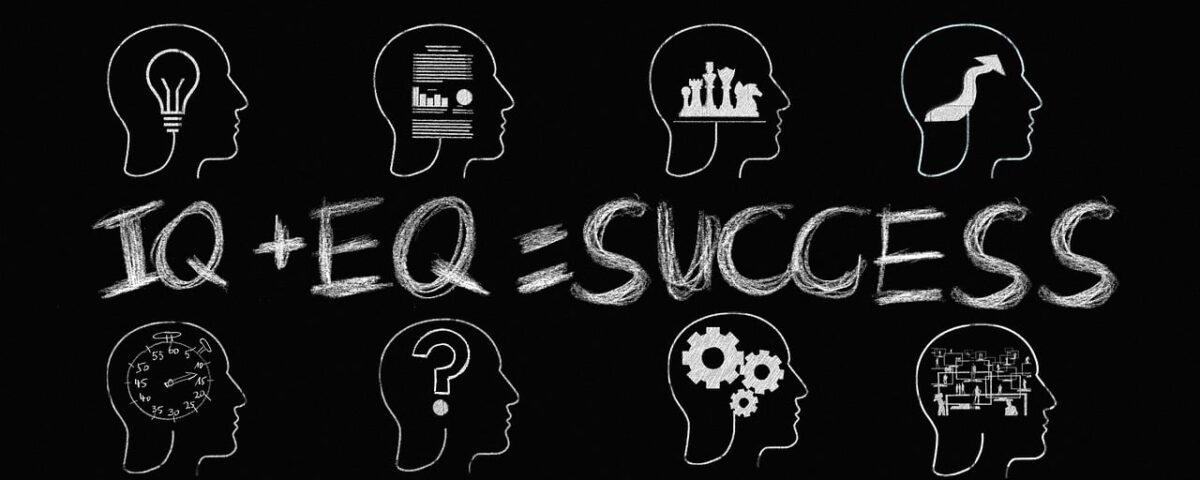
Interesting Experiences from Job Interviews – Part 3
December 7, 2024
Building a Voice Assistant to Control Your Smart Home
December 21, 2024As the CEO of a company managing complex projects, I’ve always looked for effective ways to build strong, aligned, and creative teams. One of the most powerful tools I’ve found is emotional intelligence for project managers. After reading Emotional Intelligence for Project Managers by Anthony Mersino, I felt inspired to reflect on my own experience and share both practical takeaways and personal insights.
This article combines Mersino’s core concepts with my thoughts (marked in quotes). It has been organized and translated into English with the help of ChatGPT to provide a fresh, actionable perspective on how emotional intelligence drives success in project management.
What Is Emotional Intelligence (EQ), and Why Does It Matter?
Emotional intelligence for project managers is a vital leadership skill. It strengthens team relationships, improves communication, and boosts performance.
“About 25 years ago, I first encountered emotional intelligence at a seminar. It felt like the key to success and happiness. While I no longer view EQ as everything, I still believe it’s a significant part of success—especially in IT project management.”
Applications of Emotional Intelligence in Project Management
1. Self-Awareness
Understanding your emotions, recognizing triggers, and knowing your strengths and weaknesses.
“Self-confidence is the fruit of self-awareness.”
2. Self-Management
Controlling your emotional responses and managing stress effectively.
“Without self-management, you cannot manage others.”
3. Social Awareness
Understanding team members’ emotions, showing empathy, and respecting emotional boundaries.
“Understand others and let yourself be understood. Active listening creates value.”
4. Relationship Management
Navigating conflict, inspiring trust, and nurturing strong connections within the team.
5. Inspirational Leadership
Creating a shared vision that energizes and unites your team.
“Leadership means envisioning a future that inspires others and guiding them there.”
Core Principles of EQ in Project Settings
-
Self-Awareness: Focus on the present emotional climate of your team.
“Team emotions are like weather—they shift frequently and reflect the tone set by the leader.”
-
Self-Management: Use tools like HALT (Hunger, Anger, Loneliness, Tiredness) to manage stress.
“Your energy is contagious. Be mindful of what you spread.”
-
Social Awareness: Recognize individual feelings while honoring emotional accountability.
“Respect emotional boundaries to build lasting trust.”
-
Relationship Management: Know your stakeholders and communicate clearly.
“Learn to say no while maintaining team creativity.”
Leadership Styles for Emotionally Intelligent Project Managers
-
Visionary – Focus on long-term goals, giving the team freedom in execution.
-
Coaching – Blend personal growth with performance development.
-
Affiliative – Promote harmony and team cohesion.
-
Commanding – Use when decisiveness is essential, especially in crises.
-
Democratic – Involve the team in decision-making processes.
Practical EQ Techniques for a Positive Team Culture
-
Understand individual attitudes and motivations.
-
Set clear expectations and communicate them transparently.
-
Include the team in key decision-making moments.
-
Motivate using a mix of recognition, storytelling, and personal connection.
-
Update goals regularly and face challenges together.
Personal Experiences with EQ at Work
“Emotional intelligence can be cultivated—even by people with difficult pasts. Migrants, for example, often develop high EQ from life experiences. That’s why I prioritize them when building teams.”
“One of my favorite team-building ideas was setting up a wood-fired station in winter. It encouraged spontaneous conversations and fostered connection.”
“I’ve also noticed that natural scents—like mint and rose—positively affect team dialogue and mood. A welcoming environment fosters openness.”
Conclusion: EQ Is a Leadership Essential
Emotional intelligence for project managers is not a magic formula, but it’s a powerful tool. It helps us build resilient teams, navigate uncertainty, and create work cultures where creativity and trust thrive. When practiced consistently, EQ enhances how we lead, connect, and grow.
Let’s embrace emotional intelligence as a skill set that evolves with us—and inspires our teams to do the same.
Warm regards,
Mohammad Madani
CEO
Reference
Mersino, A.C., Emotional Intelligence for Project Managers: The People Skills You Need to Achieve Outstanding Results. 2007: American Management Association.










